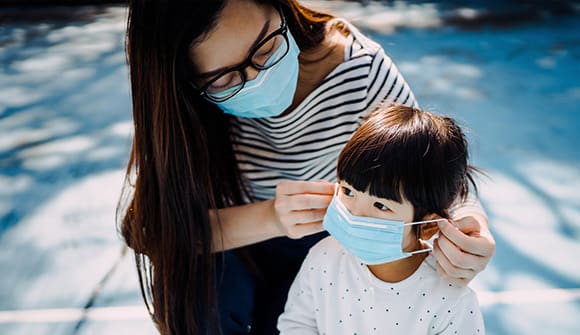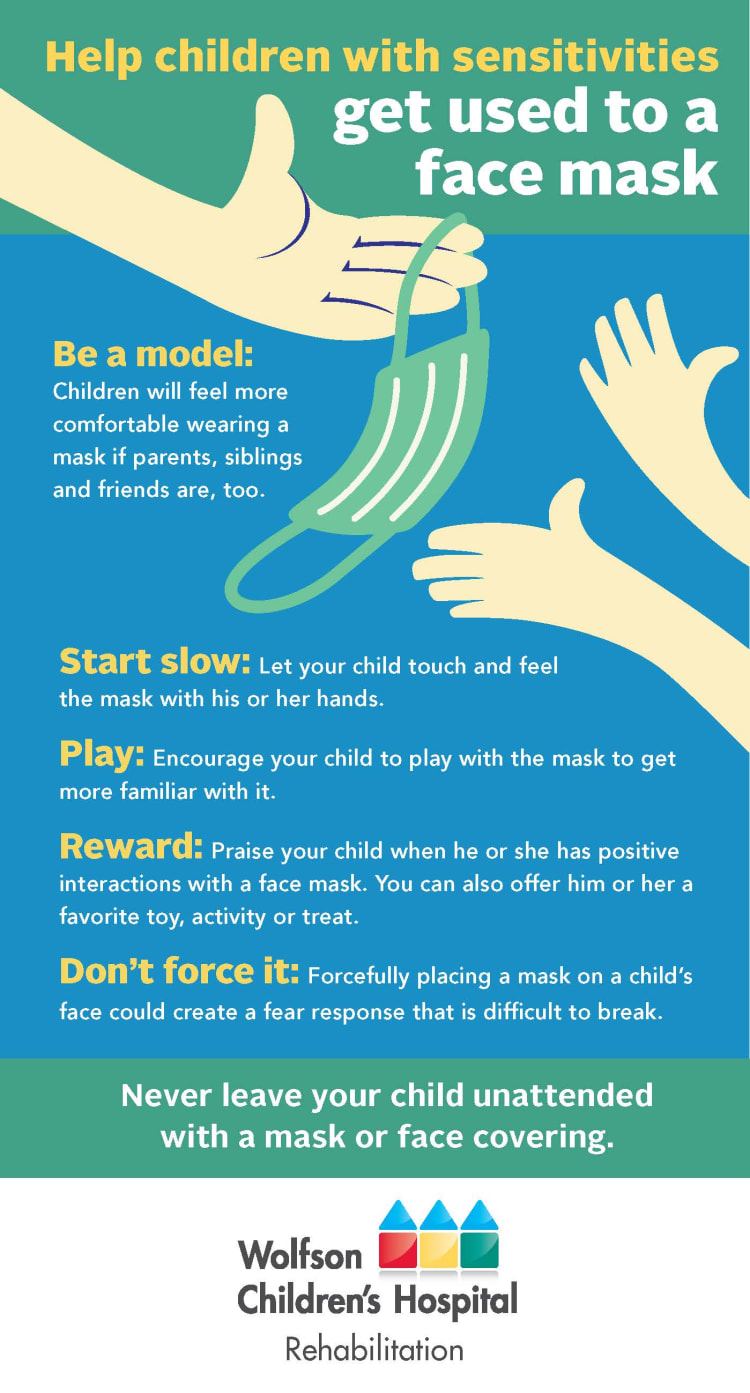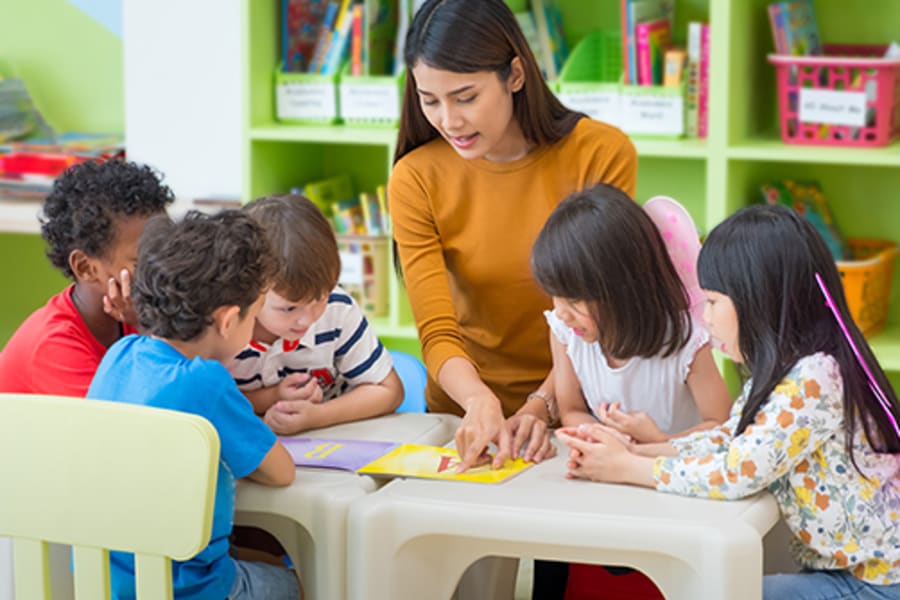Autism in the COVID-19 era
An expert shares how to help children with sensitivities through the pandemic.
Article Author: Guest Columnist
Article Date:

Our guest columnist is Lauren Papke, MS, CCC-SLP, speech-language pathologist and Autism Program lead at Wolfson Children’s Rehabilitation Autism and Neurodevelopment Center.
As the world continues to fight COVID-19, it seems like everyone is trying to find solutions to keep their loved ones safe. For families with children on the autism spectrum, it’s even more challenging.
Autism spectrum disorder (ASD) is characterized by difficulties with communication, poor social skills, a need for sameness or routines, and sensory intolerances. All of these features make adjusting to life during a pandemic especially problematic.
Masks
With schools, doctor’s offices and businesses requiring masks to prevent the spread of COVID-19, many families with children on the spectrum are wondering how to get their children to wear a mask. Children with ASD often have difficulties tolerating the sensation of touch and are especially sensitive around the face. An unwanted touch can cause intense feelings of anxiety and panic.
Whether it’s the sensation of the fabric, the pull of the elastic on the ears, or the damp feeling of their own breath, wearing a mask can be a scary and challenging new routine for children with ASD and other sensory processing disorders.
Try the following tips:

COVID-19 testing
If your child with ASD begins showing COVID-19 symptoms or has had a direct exposure, contact your pediatrician for recommendations specific to your family. Because COVID-19 testing is done using a nose or mouth swab, it can be especially daunting for children with ASD. Help your child by preparing him or her for the COVID-19 test:
- Select a testing location: Will the child feel more comfortable in the car or in a doctor’s office? Discuss which testing location is best suited for your child with his or her pediatrician and/or care team.
- Use visuals: A story with pictures and text explaining the process, or a video showing children having a positive experience while getting a COVID test, will help your child understand what will happen and make it less scary.
- Stay calm: Try to stay relaxed even in a hectic environment. Speak to your child using slow, calming sentences.
- Be understanding: Despite your best efforts, your child may not be able to tolerate the test. If this happens, contact your pediatrician.
Back to school
Whether you have chosen the traditional classroom, virtual school or a hybrid option, many families with children with ASD are worried about an uncertain and unconventional school year. Here are some suggestions for easing into a new school routine:
- Get a good night’s sleep: Quality sleep is the foundation for successful development. Create a calming nighttime routine, set a consistent bedtime and wake time, and avoid the use of electronics at bedtime.
- Provide visual supports: Use a picture schedule to outline your child’s day to help communicate the plan and set your child’s expectations.
- Get moving: Our bodies are not meant to sit for long periods of time. Whether it’s helping you put away laundry or running around outside, be sure your child is getting opportunities to get up and move throughout the day.
- Use calming strategies: Adding calming tasks throughout the day is just as important as incorporating movement breaks. Calming activities can include gentle swinging, play with clay or Play-Doh, belly breathing, or reading a book in a bean bag chair.
- Be a helper: Whether you are helping with schoolwork, homework or a therapy task, offer just the right amount of help, which is the least amount needed for your child to successfully achieve his or her goal.
This is an uncertain time for everyone, so be sure to give your child (and yourself) some grace. These unexpected transitions will not be easy, but can be achieved with patience, practice and support!
The Early Autism Intervention Program at Wolfson Children’s Autism and Neurodevelopment Center treats children ages 18 months to 4 years who have or are at risk for a neurodevelopmental disorder such as autism spectrum disorder, a social communication disorder or other developmental delays. To learn more about the program, call 904.202.4200.



